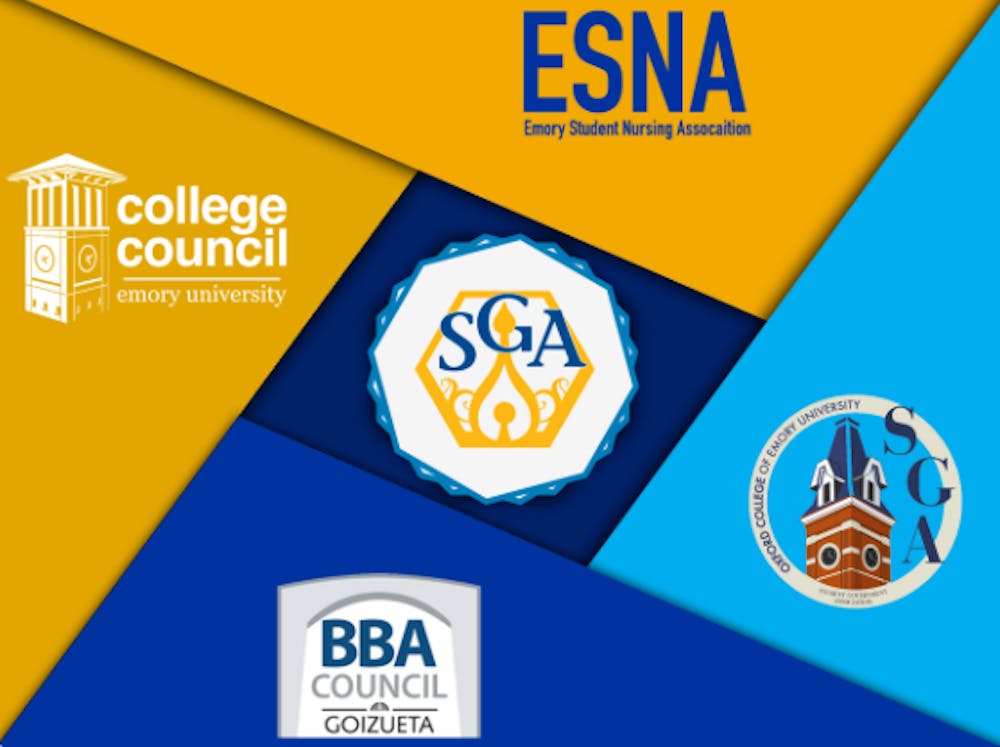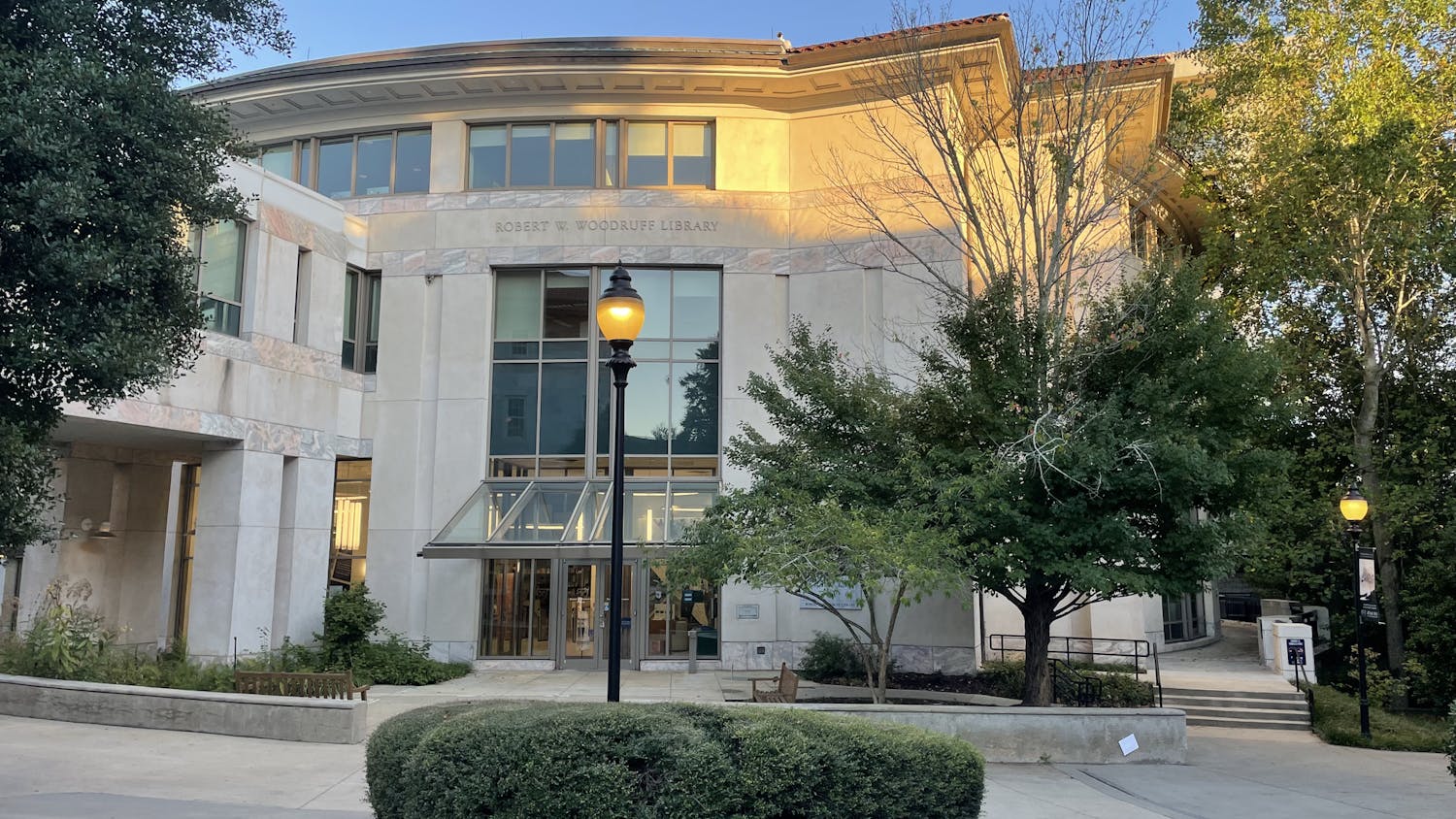On April 14, Emory University’s Office of Student Conduct indefinitely suspended the Student Government Association (SGA) with little reasoning as to why, citing only the possibility that “discriminatory harassment” had taken place. Over one month later, SGA remains paused and students, left without active student government representatives, remain in the dark. The longer the silence draws on, the clearer it becomes that secrecy is the institution’s default setting.
The Emory Wheel’s Editorial Board asked SGA President Tyler Martinez (26C) about improvements he sought to make to the SGA system in a February endorsement interview, and Martinez stated that he intended to improve the group’s transparency.
“I’m a very genuine, transparent person, and in my SGA administration, I would be the same way,” Martinez said. “I would want to make sure that any student knows that they can come to me whenever they want and that I’m always accessible.”
Amid the haze surrounding SGA’s abrupt suspension, the organization retains the “mystified” nature Martinez criticized about the former administrations. This lack of change is an outright breach of the campaign promises that secured him the office. Despite the Wheel reaching out to Martinez twice, he failed to respond and comment on SGA’s pause by press time. Martinez’s lack of comment on SGA’s pause further indicates his inability to maintain the promises of his campaign. Both Emory’s Student Group Accountability Framework administration and SGA leadership have failed to uphold their commitments to transparency and accountability, leaving students, faculty and staff alike to only guess at what is going on.
Given SGA’s vast role in the campus community, the fact that these serious allegations of discrimination and harassment have not been shared with the student body is unacceptable and is only fanning the flames of speculation among students.
Consider the scope of SGA’s responsibilities and how the freeze of their operations effectively paralyzes every arm of student governance. The executive branch, charged with day-to-day oversight, initiative development and coordinating committee work, cannot convene — meaning the machinery of student leadership has stalled. Likewise, the Diversity, Equity, Inclusion, and Belonging Committee’s efforts to plan educational events, foster open dialogue and craft policy recommendations have ground to a halt without its members’ authority to schedule meetings.
The Communications Committee, which normally bridges SGA and the student body through newsletters, social media updates and liaison work with University administration, has gone silent, with no information being disseminated from emails or social media since the suspension. Meanwhile, the Student Concerns Committee, which gathers and channels student input, has been rendered moot as there is no currently active forum for those concerns to be processed or addressed. Silence has become SGA’s preferred form of governance, and it is deeply unfair to the nearly 500 student organizations and thousands of students, all of whom have personally invested in the Student Activity Fee and depend on SGA to lead.
According to an SGA legislator who requested anonymity for fear of retribution by the University and SGA leadership, they “only found out of SGA’s pause when someone who was confirmed to the Executive Branch forwarded an email from SGA leadership that was addressed only to the Executive Branch.”
Although the internal turmoil occurring within SGA is not transparent, it is clear that the organization has become a hostile environment for its members — even if students can’t see the fire, we can certainly smell the smoke. Legislators elected to advocate for their peers’ interests have been left wondering about the future of SGA, blocked from disclosing their own deliberations for fear of retribution. This climate of intimidation undermines the very idea of representative leadership.
Legislators must not allow the obscurity of SGA’s suspension to tie their hands. As the spring term wraps up, SGA leaders can’t afford to stay silent until August. In the next two months, they should publish a brief “pause report” outlining what’s been done so far (e.g., which offices investigated what, anticipated timeline), circulate a weekly “SGA Summer Bulletin” via email and social channels, and host at least two informal “Coffee & Questions” pop-ups on campus and virtually to gather student input for fall.
Explicit details about conducting investigations are rightfully confidential, but that does not mean students should be left with a meager sentence-long official explanation from University communications. Transparency and accountability are essential to good governance, and that applies to both administrators and SGA’s elected leadership. The current situation undermines both the integrity and credibility of student leadership on campus and erodes trust in one of Emory’s most influential organizations. Students must see this situation as what it truly is: a transgression on student rights for representation and an effective gag on student leadership at Emory. If Tyler, Zoe and the rest truly value transparency, they’ll use these summer weeks to prove it, rather than disappearing until classes start again.
The above editorial represents the majority opinion of The Emory Wheel’s Editorial Board. The Editorial Board is composed of Arts & Life Editor Hunter Buchheit, Allie Guo, Mira Krichavsky, Eliana Liporace, Niki Rajani, Josh Rosenblut, Ilka Tona and Crystal Zhang.










